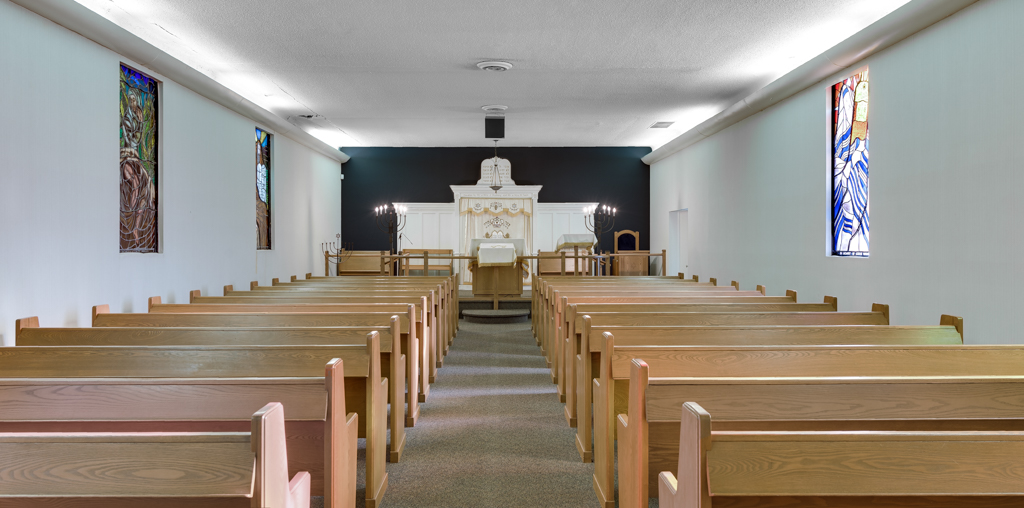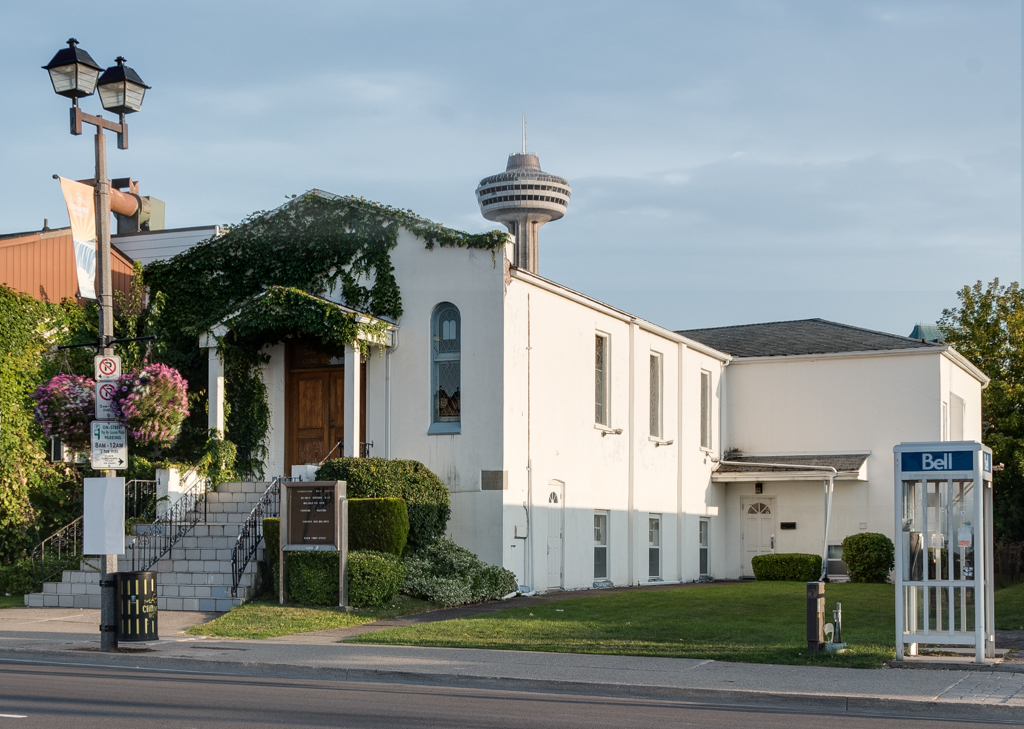A small white synagogue building, once the heart of the Niagara Falls Jewish community, sits forlorn and abandoned today.
The families who once worshiped in the little structure decided to sell it last year, finally acknowledging that their dwindling numbers, and rising age, made it almost impossible to keep the structure operating.
Now, the 25 or so families who make up Congregation B’nai Tikvah, a Reform synagogue, are searching for ways to keep their community alive without a physical structure at its heart.

“Is there a future for us without a building? We think so,” said Shael Gwartz, recently elected vice-president of the century-old congregation. “Right now, we’re open to looking at whatever options might be out there.”
Gwartz said the decision to shutter the Ferry Street building came after years of community soul-searching for a way to balance the needs of an old building with the resources of an aging and dwindling congregation.
“Over the last 15 years, the condition of the building has been deteriorating. We’ve been doing the minimum to keep it watertight and heated, but we also have a decreasing membership,” he said. “The original members have passed away and their kids have moved towards Toronto. Not too many have stayed in Niagara, so the size of the community has gone down.”
Over the years, Gwartz said, use of the B’nai Tikvah building declined as membership dropped. Regular services gave way to monthly gatherings which then dwindled to services on High Holy Days and other festivals.
“We looked at the condition of the building at a very basic level and did a rough estimate of what it would cost and concluded the costs of maintaining the building on a go-forward basis were greater than the financial resources we had or were going to have in the future,” he said. “The numbers just didn’t add up.”
When the decision to sell was finally made, the congregation planned to continue meeting in hotel ballrooms and the homes of members. Those plans, however, were knocked off the rails by the pandemic.
“We still have a membership, but all of the activities have been put on hold because of COVID,” Gwartz said.
For High Holy Day services this year B’nai Tikvah members joined the Zoom programs of Hamilton’s Temple Anshe Sholom. Hanukkah plans for this year are uncertain, but the congregation hopes to have a better idea of its future by Pesach in April 2022.
Jewish life in Niagara Falls dates to at least 1918. The original members of the community met in their own homes before buying a house as their meeting space. The Ferry Street building, on the fringe of Niagara Falls’ tourist area, was constructed in 1937 and renovated in the 1950s and 1970s. The latter upgrade included the installation of seven stained glass windows.
Originally known as B’nai Jacob, the congregation became B’nai Tikvah in 1999 after merging with a struggling Reform synagogue in St. Catharines called Temple Tikvah.
Gwartz said the decision to finally vacate the building was an emotional one for long-time members who have fond memories of Hebrew school classes and many simchas in the shul.
The board is aware of the sentimental attachment and has tried the preserve the synagogue’s artifacts and history.
Early ideas included turning the main floor of the building into a museum, with Jewish space in the basement. That was eventually dropped because of the cost.
The current plan is to place six of the seven stained glass windows and the congregation’s memorial plaques into a Holocaust memorial in the Jewish section of a Niagara Falls cemetery. The seventh window is on loan to a local museum.
B’nai Tikvah had four Torah scrolls when the building closed. One has been donated to the Hillel chapter at Western University and the other three, along with 100 years of Niagara Falls Jewish history, remain in secure storage waiting for a decision on the congregation’s future.
The closing of the B’nai Tikvah building leaves Congregation B’nai Israel in St. Catharines and Chabad establishments in Niagara Falls and at Brock University as the only organized Jewish presence in Niagara Region.
B’nai Tikvah’s experience mirrors that of other small congregations and Jewish communities across Canada, said Perry Romberg, manager of regional capacity and programs for the Jewish Federations of Canada-UIA.
According to the 2011 Census data there are 226,610 Jews living in Ontario, with up to 20,000 outside Toronto, Ottawa, Hamilton, London and Windsor.
While the smallest communities are struggling, the province has been seeing growth in communities like Kitchener-Waterloo, Guelph, Barrie/Simcoe County and Kingston as people are attracted by more reasonable housing prices and job opportunities.


